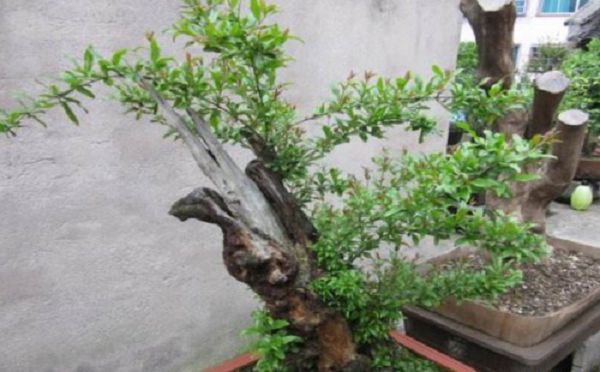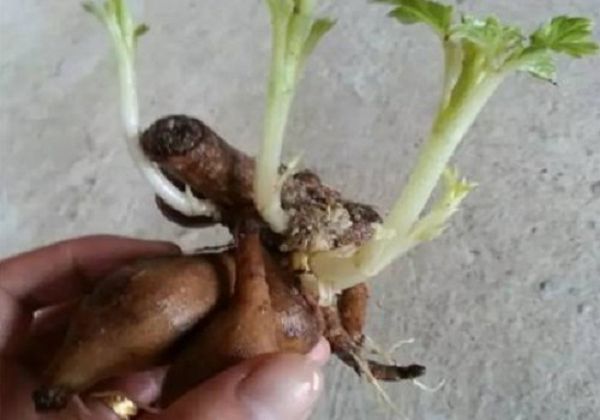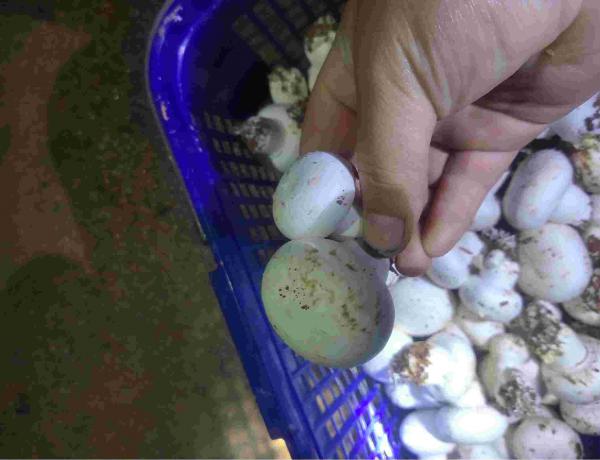Can pomegranate trees have no roots or few roots can be planted?

Many people like potted pomegranate trees, and potted soil is the basic condition for the growth of pomegranate trees, and the quality of soil will have an important impact on plant growth. The root system of pomegranate is the key part to absorb nutrients and provide nutrients for trees. If the root system is too poor, no matter how good the pot soil is, it will not be able to smoothly transport nutrients to the tree, and the plant will still not be able to maintain normal growth and may even be fatal. It can be seen that the importance of roots for trees is self-evident.
The growth status of pomegranate trees is often affected by the root distribution, and the root groups are usually concentrated in the periphery of the crown projection. And the root system of the pomegranate tree is so developed that it even seeps to the depth of several meters underground. Not only that, its well-developed old root has a strong ability to absorb, and a lot of nutrients can be obtained from the deep soil. And pomegranate trees have the characteristics of light, warmth, heat resistance and drought resistance, so compared with many tree species, pomegranate trees are easier to raise.
As we all know, pomegranate trees have a very strong ability to germinate and adapt to the environment, and it is usually necessary to cut off the overgrown old fibrous roots in the process of transplanting, which can stimulate them to extract a large number of new roots. so as to improve the absorbing capacity of the roots and further enhance the tree potential. Practice has proved that pomegranate trees are easy to plant even if they have no roots or have few roots. As long as the growth environment is suitable, usually cutting a few old branches from the mother plant of pomegranate can often survive, which basically shows that pomegranate can survive even if there are no roots or few roots.
However, for pomegranate seedlings or downhill stumps, if the root system is too few, although it can survive, it has a certain impact on its growth rate. After all, plants need to sprout a large number of roots to absorb water and nutrients to maintain and promote growth. If pomegranate branches are used for cutting propagation, it usually takes 40-60 days to take root and sprout, but if you transplant rootless or rootless seedlings or downhill stumps, although they may eventually survive, the process often takes much longer.
In general, as long as the roots of pomegranate trees with no roots or few roots are not infected with diseases and insect pests and do not rot, they can get our scientific and careful care after planting, and they will often eventually take root and sprout until they survive. This process is often long and time-consuming, so in addition to doing a good job in maintenance management, we also need to have enough patience.
However, for downhill piles or old piles with no roots or few roots, it seems to be more difficult to make them survive after planting. In order to make it alive, the pomegranate trees with no roots or few roots need to leave as few branches and leaves as possible, so they need to be re-cut, mainly in order to reduce water evaporation and nutrient consumption. After all, pomegranate trees in this state have no way to exert the absorbing capacity of their roots to provide nutrients and water for the growth of branches and leaves.
Of course, even for rootless or rootless pomegranate trees, we still need to keep watering scientifically, and it is even necessary to spray more water to keep wet. After all, pomegranate trees need a suitable humidity environment to sprout roots and buds smoothly. Therefore, watering is a very necessary work, which is one of the conditions to ensure the germination of rootless or few pomegranate trees.
To sum up, it is possible to plant pomegranate trees without roots or with few roots, but it is more difficult to survive than those with roots and more roots. It is mainly reflected in the higher requirements for planting technology and stricter requirements for the growth environment. However, as long as we can follow the scientific and standardized process of planting and breeding, it is only a matter of time before we can finally plant it alive.
Related
- Fuxing push coffee new agricultural production and marketing class: lack of small-scale processing plants
- Jujube rice field leisure farm deep ploughing Yilan for five years to create a space for organic food and play
- Nongyu Farm-A trial of organic papaya for brave women with advanced technology
- Four points for attention in the prevention and control of diseases and insect pests of edible fungi
- How to add nutrient solution to Edible Fungi
- Is there any good way to control edible fungus mites?
- Open Inoculation Technology of Edible Fungi
- Is there any clever way to use fertilizer for edible fungus in winter?
- What agents are used to kill the pathogens of edible fungi in the mushroom shed?
- Rapid drying of Edible Fungi



